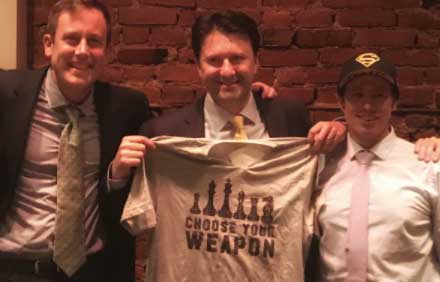
Fellow Establishes Urologic Oncology Program in Israel
-
Miki Haifler, MD, just completed his urologic oncology fellowship at Fox Chase. Haifler knew he wanted a field that incorporated both major and minor surgery, and offered a rich clinic experience for him to interact with patients on a personal level. He believes urology and urologic oncology are unique in this respect.
“I interviewed in a few programs, but Fox Chase’s Society of Urologic Oncology Fellowship had a special combination of high volume of cases and the ability to let me do optical tissue diagnosis research, not usually researched by fellows,” said Haifler said.

Haifler said the main advantage of the program is the variety of attendings that allowed him to see different approaches to surgery and urology in general.
“The staff are great. They are experienced, teaching-oriented and academically highly productive,” he said.
Haifler, who was born in Israel, is now moving back home where he will become the head of the uro-oncology service at Itzhak Shamir Medical Center, an 800-bed university hospital near Tel Aviv. His hope is to take his clinical and research experiences and build a great service similar to Fox Chase.
Married with three children, in his spare time, Haifler enjoys skiing, scuba diving, and hiking.
Notes:
- In addition to Haifler, Benjamin Ristau, MD, also completed his fellowship.
- Andres Correa, MD , and Shreyas Joshi , MD, completed their clinical year
- Brian Kadow, MD, and David Cahn, DO, just entered fellowship
Led by director David Y.T. Chen, MD, the two-year fellowship for urologists who have completed a general urology residency program is offered by the Section of Urologic Oncology. Fox Chase Cancer Center has offered post-graduate surgical training since 1986. In 2006, the Center initiated this multidisciplinary fellowship in urologic oncology, which was recognized and approved by the Society of Urologic Oncology in 2008. One year of fellowship is dedicated to an in-depth clinical experience, providing extensive operative training in minimally invasive laparoscopic and robotic-assisted surgery, as well as in standard open surgical approaches. Additional rotations in GU medical oncology and GU radiation oncology will give important experience regarding non-surgical interventions. The second year of fellowship is devoted to basic and/or clinical research.

